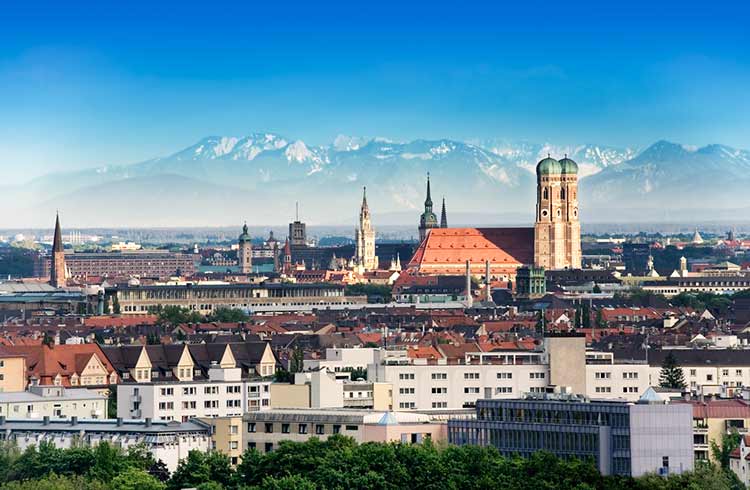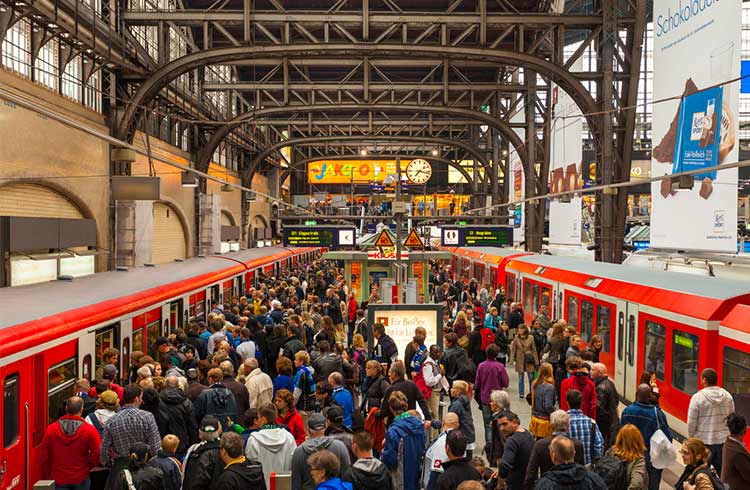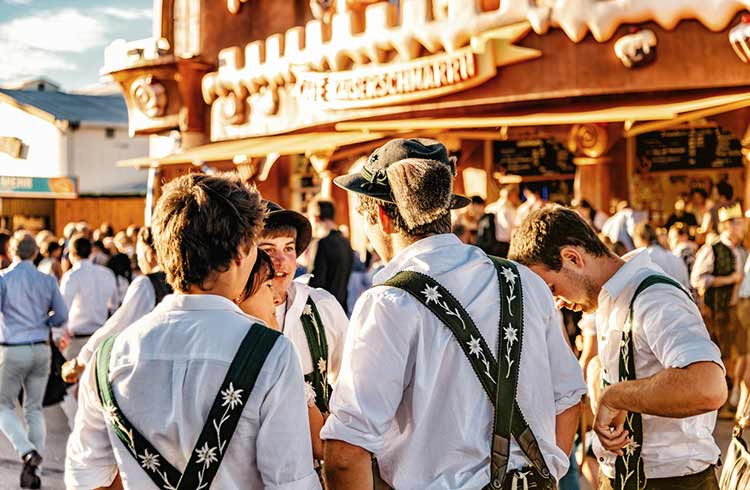Is Germany Safe? Everything Travelers Need to Know
Just how real is the threat of terrorism to travelers? Find out how to avoid crime, protests and other dangers while traveling in Germany.
 Photo © iStock/bkindler
Photo © iStock/bkindler
Here are a few things you should know about safety in Germany, plus some simple tips to help you avoid risky situations and have a safe trip.
- Do travelers have anything to worry about in Germany?
- Terrorism in Germany
- Increased security
- Traveling safely around Germany
- Demonstrations and protests in Germany
Do travelers have anything to worry about in Germany?
In the 2020 Global Peace Index, Germany is ranked 16 out of 163 countries when it comes to safety and peace in the country. In Europe, Germany is ranked 11 out of 36 countries.
Travelers should take usual precautions to avoid being a victim of theft, bag snatching or pickpocketing in Germany, like you would anywhere else. Never leave your valuables unattended, keep your bags locked up safely at the hostel, and valuables in a secure location, such as the hotel safe if you have access to one.
If you are a victim of theft, get to the nearest police station at your earliest convenience to lodge a police report.
Find out about common travel scams to avoid while traveling in Germany, from fake train inspectors to pesky beggars who will do anything to get your money.
You should exercise extra caution at airports, railway stations and in crowded public spaces. Not just in light of the COVID-19 pandemic and the need for social distancing, but also to be aware of any suspicious activity.
Terrorist attacks appear to be a common theme in news surrounding Germany, but it certainly isn't a reason to avoid traveling there. Increased security has been put in place as a precaution, and there are so many safe places to go and things to do in less crowded areas of Germany.
LGBTQ+ travelers may face discrimination in Germany, however an increase in the number of incidents reported may be due to a rise in the number of victims who are willing to speak out about these events, according to Jan Noll, editor-in-chief of Siegessäule, in an interview with DW. Overall, LGBTQ+ travelers are widely accepted by most Germans.
Terrorism in Germany
Germany has unfortunately been linked to terrorist attacks beyond it's borders (the leaders of the 9/11 attacks on the United States in 2001 were students based in Germany), and has seen a number of horrific incidents in recent years. But, just how worried should you be as a traveler?
In July 2006, home-made bombs were found on trains heading out of Cologne. In September 2007, the Sauerland terrorist cell was busted just as radical Islamists were planning a series of car bombings in Germany. In November 2010, bomb scares and evacuations led to an increase in police presence and closures of major buildings.
In 2016, Germany saw two terror related incidents; a shooting rampage in a Munich shopping center killing nine people and injuring a dozen, and the Berlin Christmas Market attack, where a truck ploughed into marketgoers killing 12 people and injuring more than 50 others.
There is also a rise in the number of right-wing extremists in Germany. As a result of these incidents and others not mentioned, security has increased across the country, and alerts are released by government travel advisories whenever threats emerge.
Increased security in Germany
You will notice the presence of police, whether that be at a major transport hub, where police with sniffer dogs patrol, or while visiting popular attrations.
Many major tourist attractions across Germany, such as Berlin's Television Tower, will have security and bag checks in place. Museums will ask visitors to check large bags and coats in to their cloak room. If you want to avoid waiting in more queues, pack light.
If you are visiting the Reichstag, expect very tight security. Many visitors wait for up to two hours in queues, and undergo extensive airport security style checks. Consider booking a tour in advance, or make an effort to wake up early and get there first to avoid the long lines.
Anyone over the age of 16 must carry ID at all times. If you are unable to show your identity card or passport when requested by police, they may escort you to where your passport is being kept – or you could be subject to a fine. If you feel uneasy carrying your passport on you, simply take a photocopy of your passport wherever you go.
Traveling safely around Germany
Germany has a very efficient public transport system, which is easy to use for first-time visitors. Delays are rare, prices are fair, and for anyone worried about traveling long train journeys alone, security guards sometimes patrol trains at night.
If you're planning a road trip across Germany, find out how to stay safe while driving the famous Autobahn.
Demonstrations and protests in Germany
Protests against COVID-19 lockdown regulations have erupted in various countries across the world, including the US, France, Poland, and also in Germany.
But, the most infamous protests in Germany are the annual May Day protests, which take place each year on 1 May. Traditionally marked by union rallies in many European countries, these protests are about issues ranging from pension reforms to living standards.
Since 1987 when the Labour Day holiday protests began, police have learnt to brace themselves for car burning, and projectile hurling, as anti-capitalists and members from far right parties, labour unions and leftists march.
Hamburg and Berlin are common hot-spots for riots on May Day. Steer clear of Kreuzberg and Friedrichshain in Berlin, where things more often than not turn ugly.
Never deliberately put yourself in harm's way. Avoid crowds, angry mobs and busy public spaces during periods of civil unrest as best you can.
Smaller riots, warm-up protests, can occur throughout Spring in the lead-up to May Day, with posters blanketing major cities. So it's hard to get caught by surprise by the big demonstrations.
If you do find trouble, the emergency number in Germany for the police is 110.
Always keep up to date with news and travel warnings. The German government keep people informed about possible threats, which was evident back in November 2010, when the government admitted for the first time there was a 'concrete' threat of an attack.
Read the latest travel alerts to find out how COVID-19 restrictions may affect your trip to Germany.
Related articles
Simple and flexible travel insurance
You can buy at home or while traveling, and claim online from anywhere in the world. With 150+ adventure activities covered and 24/7 emergency assistance.
Get a quote


6 Comments